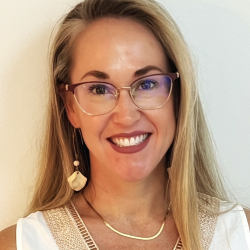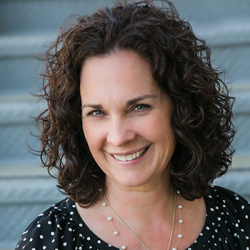
We're pleased to share a white paper and infographic in collaboration with Project Tomorrow® that highlights what stakeholders are saying about PBL!
In a nutshell...
Educators, parents, and students agree that Project Based Learning:
- creates a compelling learning environment that closely matches students’ preferences for learning today,
- supports the development of college and career-ready skills, and
- enables students to be more successful academically.
 Project Tomorrow® has long documented increased interest of teachers, school and district leaders, parents, and students for authentic and meaningful learning experiences that connect academic content and success skills, along with the emergence of PBL in schools and districts. In a 2019-2020 SPEAK UP™ survey, they gathered input about PBL from 137,000 stakeholders. Here’s what those surveyed had to say.
Project Tomorrow® has long documented increased interest of teachers, school and district leaders, parents, and students for authentic and meaningful learning experiences that connect academic content and success skills, along with the emergence of PBL in schools and districts. In a 2019-2020 SPEAK UP™ survey, they gathered input about PBL from 137,000 stakeholders. Here’s what those surveyed had to say.
77% of teachers said “My students would benefit from PBL experiences in school.”
More than 11,000 teachers nationwide responded and the majority of them believe their students would benefit from PBL experiences in school. This is especially noteworthy because it was consistent for teachers in all grade levels and content areas. Almost two-thirds of teachers said PBL appeals to today's students because it gives them opportunities to design their own projects, work on real-world problems, and take advantage of their individual strengths
So how can educators make that kind of teaching and learning a reality for their students?
Project Based Learning is a teaching method in which students gain knowledge and skills by working for an extended period of time to investigate and respond to an authentic, engaging, and complex question, problem, or challenge (PBLWorks, 2021). When teachers design student learning experiences, they can follow the PBLWorks model for Gold Standard PBL and include the Essential Design Elements in projects.
Students consistently state they like learning best when they can “do things, build or make things, and share what they have learned with others.”
While the PBL-specific questions were new to the SPEAK UP™ research, throughout the history of the data collection the feedback from students about their preferred way to learn has remained consistent. If you were able to join us at PBL World 2021, the stories from our student panelists shared similar feedback firsthand (we hear you Jose, Sophia, and Naseem!).
Parents of school-aged children identified these top college and career-ready skills as a priority!

What is the future of Project Based Learning in our classrooms? The sky's the limit - we say that every journey toward high-quality PBL experiences starts with one project! Need some further support or project ideas? Check out our project library at my.pblworks.org by signing up for a free account that unlocks access to 72 projects and project ideas as well as other resources to get you started on your own PBL journey.
Still wondering if PBL is right for your students?
The data and field experiences show that PBL benefits all students. There is an ever-growing abundance of increasingly rigorous research that shows that Project Based Learning works to improve a wide variety of student outcomes including academic achievement as well as non-academic outcomes (e.g., critical thinking, collaboration, communication). Our analysis of these studies shows that PBL can have an impact on student achievement in all core content areas, across grade levels, and for students with diverse backgrounds (Kingston, 2018).
Results from two recent rigorous research studies supported by Lucas Education Research show compelling evidence that underscores the differential impact that PBL can have on student outcomes across grade levels, racial/ethnic groups, and socioeconomic groups. In both studies, students engaged in PBL outperformed students in traditional instruction. Here are brief highlights from these studies:
- Knowledge In Action Study: This study is a randomized controlled trial (RCT) of 3,645 students in five large urban districts engaged in both AP Environmental Science and AP U.S. Government and Politics PBL courses and traditional courses. Students in AP PBL courses outperformed students in traditional AP courses by 8 percentage points. Results for students from low-socioeconomic backgrounds were comparable to their peers from higher socioeconomic backgrounds. For teachers who taught AP PBL for a second year, students in the AP PBL courses outperformed peers in traditional classrooms by 10 percentage points. PBLWorks designed and facilitated professional development for this study.
- Multiple-Literacies (M-L) PBL: This randomized controlled trial (RCT) of 2,371 third-grade students in 46 schools engaged in interdisciplinary PBL units emphasizing science, mathematics, and literacy as well as social emotional learning (SEL) and traditional instruction. Of the schools in the study, 62% of students qualified for free and reduced-price lunch, and 58% were students of color. Researchers from Michigan State University and the University of Michigan found that students in the ML-PBL program significantly outperformed their peers in traditional instruction in science by 8 percentage points on average. Students engaged in ML-PBL units also reported the value of reflection and collaboration more frequently than their peers in traditional instruction. These results held across socioeconomic levels and reading levels.
Learn more about this new research and access all of the research briefs in this blog post from earlier this spring.
Wherever you are on your PBL journey, whether brand new to it or well on your way, there’s one thing we know is true. PBL benefits all students, and educators across the world have found it to be a pedagogy that re-energizes their love for teaching.
So, what are you waiting for? Join us!
Want to learn more about Project Tomorrow’s SPEAK UP Project?
Project Tomorrow’s® national SPEAK UP™ research project is designed to “support better local, state and national decision making on teaching and learning by leveraging authentic views of K-12 stakeholders.”
Project Tomorrow’s nonprofit mission is to support the effective implementation of research-based learning experiences for students in K-12 schools. Since 2003, almost 6 million K-12 students, parents, teachers, librarians, principals, technology leaders, district administrators, and members of the community have shared their views and ideas through the Speak Up Project. Learn more at www.tomorrow.org.


